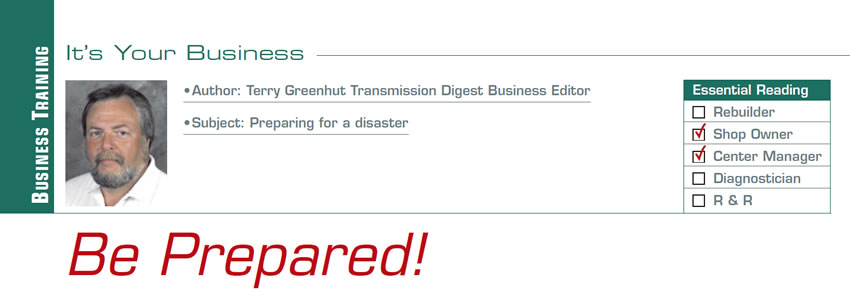Knowledge Isn’t Power; Execution Is!
People say knowledge is power, but it absolutely isn’t. What you do with that knowledge is what’s really important and powerful. Lots of folks have great ideas for inventions or starting businesses, but the vast majority never act on them, or if they do it’s in some half-baked manner that never brings the results they envisioned. It’s one thing to have a great idea; it’s quite another to see it through to its ultimate conclusion.
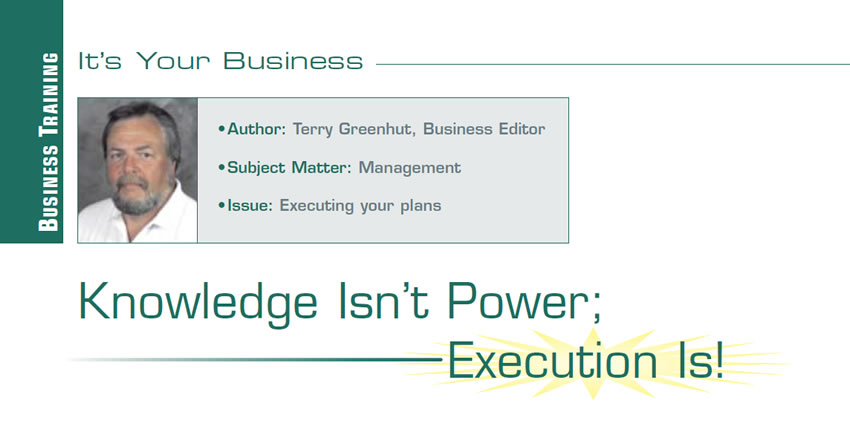
Back Off to Control Volatile Situations and Make Better Sales
Often, holding your tongue while figuring out the right responses to get you what you want is the best way. You can turn a demanding or difficult customer around, gain the respect of friends and employees, and get Aunt Sarah to understand that you’re doing what’s right for you and your family. Some might consider it a form of weakness not to jump right in to protect your honor or show a customer how far off base he is, but it can be a useful tool in getting people to realize just how wrong they might be or what’s best for them in their situation.
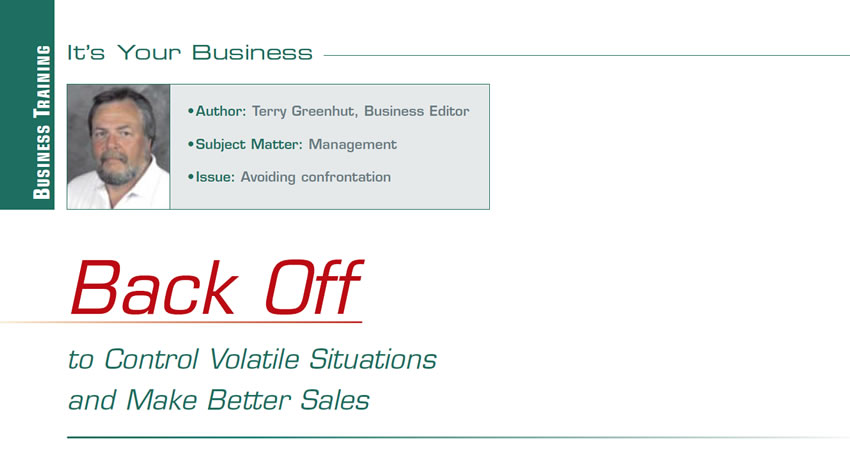
Belonging – How Important Is It?
When employees feel as if they belong, they tend to give a lot more. They’re part of the cause, not separate from it. They’ll usually work to the limit of their capabilities. When they don’t feel like a member of the tribe they don’t get comfortable enough with their surroundings to be willing to give it their all. Employees who are treated like outsiders quickly get the idea that they won’t be welcome at the company very long so they work with one foot out the door and their bags always half packed.
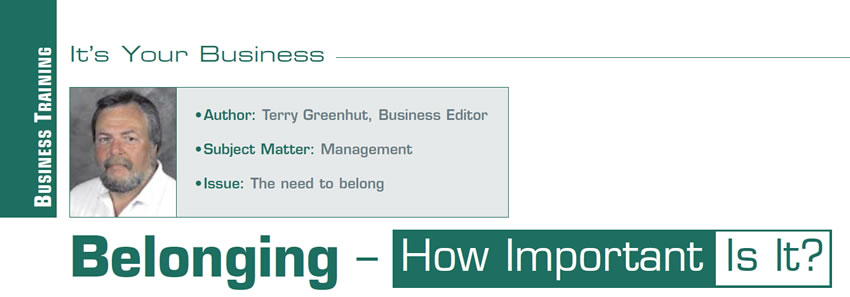
Train Me!
Shop and small-business owners, in general, fill positions by hiring people who come with credentials. The assumption – and it’s the wrong one most of the time – is that they’ve already been trained and know their jobs well. One problem is that they had never worked for you. The way you do things in your shop may be far removed from the way they were done in the last shop at which this employee worked. If nothing else you have to train people to do things according to your credo and mission statement. Another problem is that employees sometimes lie about their accomplishments and skill level to get a job, hoping to fake their way in until they actually learn to do it right.
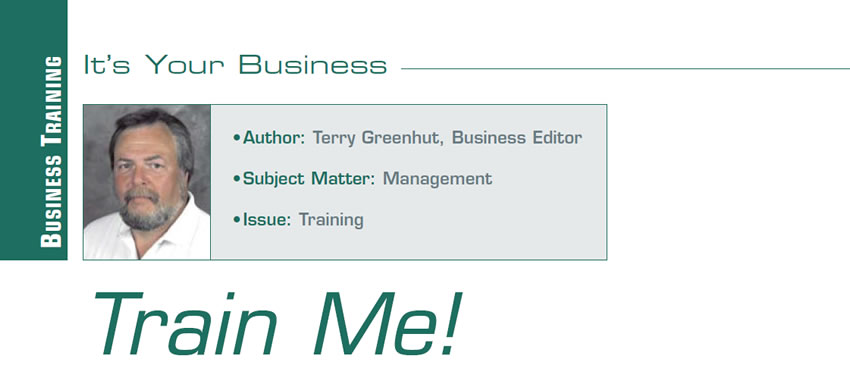
Tell Me What You Didn’t Like!
One of the worst things that can happen to any business is to lose customers without knowing why. How do you fix a problem when you don’t know what it is? Often when customers stop using our services they are upset about something. It might be about price, quality or service, but these are all broad areas. What is it specifically? Since we all base our decision as to whether to go back to a certain establishment on our last experience with it, what went wrong? What happened that last time?
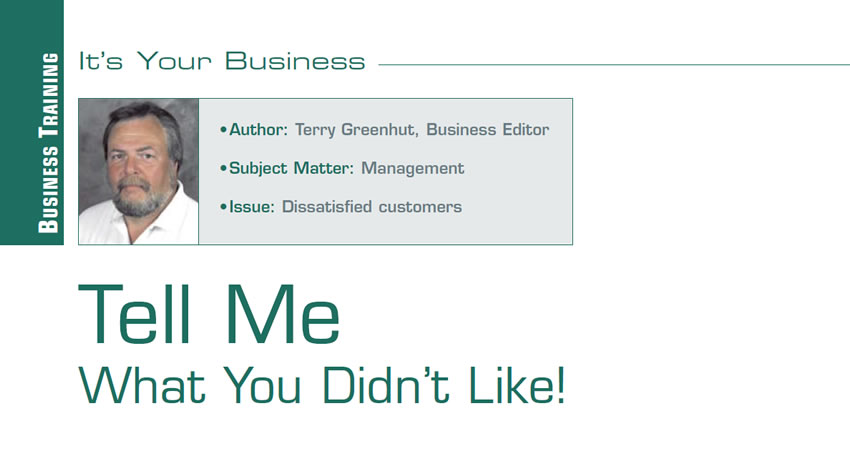
What Kind of Boss Are You?
Your behavior in front of your employees is a big determining factor in the way they will behave toward each other, your customers, your suppliers and you. Here are some prevalent and damaging behaviors that some bosses exhibit. If they expect the best from their employees they’ll need to clean up their own act first.

Are You Easily Understood?
People are focused on what’s important to them at the moment. If what you’re saying either doesn’t have enough significance for them or they don’t fully understand it, you lose them. They can look you right in the eye and go “Uh-huh, uh-huh” and not be getting a word of it. When you use words that people can’t understand either because they are technical terms or they’re just above the grade level of education that the average person has, again you can lose them. If you try to use acronyms or abbreviations to shorten up your questions or statements, you need to know for sure that the other person knows what they mean or again you will lose them. In other words, it’s so easy to lose their attention and so hard to keep it. You can keep it, however, by simplifying your terminology and by showing them how what you’re saying benefits them. People always listen when they think they are going to derive a benefit from it.
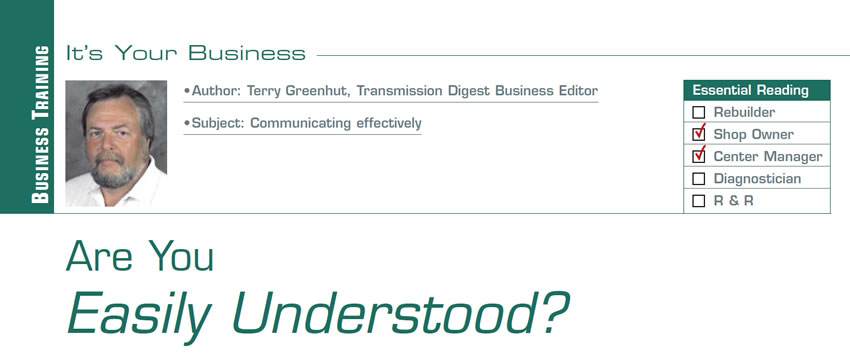
Turning the Tables: What kind of customer are you?
Being a better customer can often get you better service. Think about how good you feel when a customer of yours is pleasant and understanding of a situation that might not have gone very well. In my experience it just makes me want to help a whole lot more than when they come on strong and say agitating phrases like, “That’s not acceptable!”
I remember a time when my flight home out of Chicago was canceled after we were on the plane and ready to go. People were freaking out. They went running up to the counter and some even started yelling obscenities at the young lady working there, who had no fault in the matter and was trying to help rebook passengers on other flights. I was about 20th in line and could see her frustration mounting while each passenger in turn gave her a verbal beating. It got to the point where she started telling them all that there was nothing she could do about getting them out that night and that they would have to go to the ticket counter all the way back in the main terminal to make other arrangements.
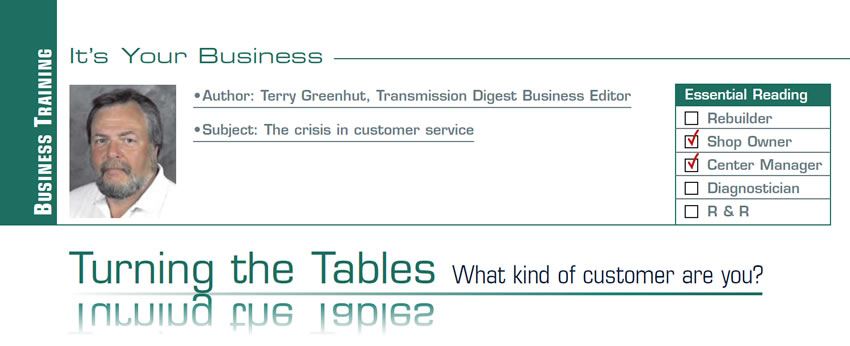
Seven Business Facts You Need to Know
There are, fortunately, seven facts that you can learn and use continually. These facts could help you avoid the mistakes that trip up so many others and go on to achieve your ultimate success.
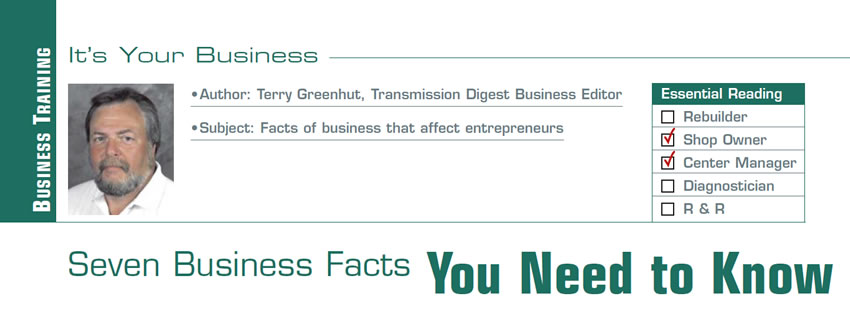
Fearful Leadership: Do You Suffer from It?
It’s a tough time to be a leader. What with the economy being so unforgiving, making smart business decisions is crucial. That’s true in terms of not only strategy (whether to change your service mix or move into a new marketplace) but also relationships (whether to fire the high-volume performer who drives you nuts or address the conflict head-on). All actions have consequences. So does lack of action. And with the margin for error so slim, you want to make sure you’re thinking as coolly and clearly as possible.
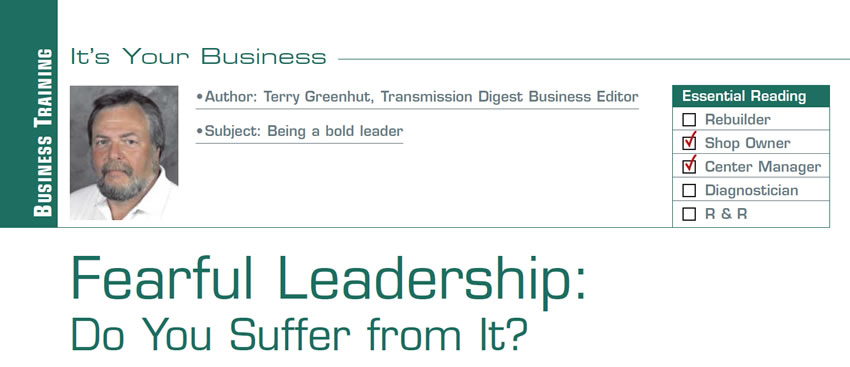
Choices
Business, as life itself, always seems to come down to the choices we make. I’ve found that we are usually presented with two options at a time, rarely more. It’s a matter of picking the best road to go down in almost any instance.
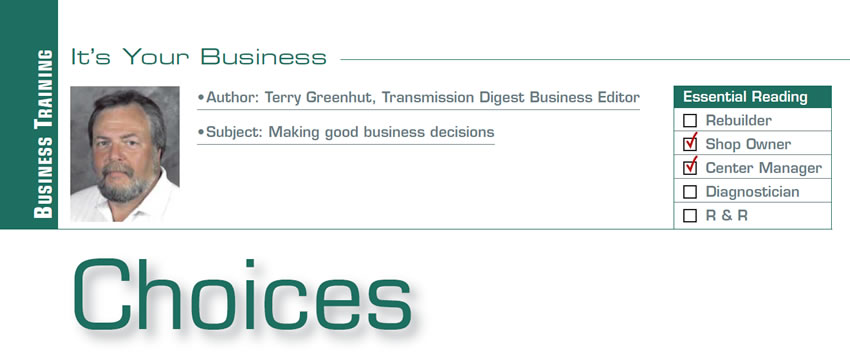
Be Prepared!
“Be Prepared” – the Boy Scout motto. I grew up with it. It was great for teaching us how to think ahead, to hopefully be ready for anything that comes along. What came along in the fall of 2012 no one could fully prepare for: a hurricane followed days later by a Nor’easter that turned into a snow event that shattered the record snowfall for that date by about 4 inches.
The significance of all this is that for the first time in the northeastern United States there wasn’t enough preparation to be done that could have avoided so much of the devastation. Instead of hundreds or thousands being without the essential utilities like power and water the way we are used to seeing after a bad thunderstorm, this time it impacted millions and will continue to for quite some time.
